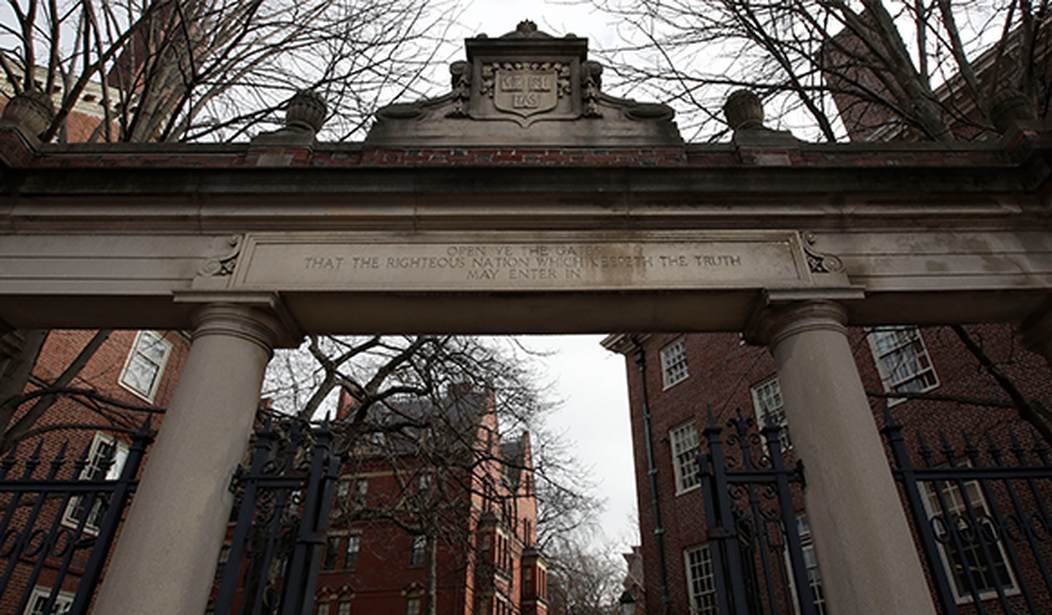As the son of Chinese immigrants, I was often teased at school and felt like I didn’t fit in. I faced discrimination from people of other races, and I struggled with speaking a different language and navigating a different culture at home. Compounding the sense of isolation was the omission of Asians from most conversations about race in America, which usually focus on larger minority groups with a longer history in the United States.
For decades, colleges like Harvard have told applicants that they are evaluated holistically on an individualized basis, with attention given to evidence of disadvantage. By any reasonable measure, Asian Americans have faced disadvantages. Yet the use of the phrase “underrepresented minority” and the discourse about schools wanting to “look more like America” caused Asians to question whether the promise of individualized consideration was just empty rhetoric. If Harvard wanted to build a racially diverse student body, how could it avoid treating students as representatives of their race? How could it avoid pitting Asians against each other for the limited number of opportunities available to them? And given the strong academic performances of many Asians, could it be harder for Asian students to earn admission than white students, despite their experiences of discrimination as racial minorities and immigrants?
Harvard’s response to these questions has always been to assert that it treats all applicants equally. But in a court of law, what matters is the evidence and not mere assertions. After years of litigation, in which Harvard produced evidence of how its admissions process worked in practice, the Supreme Court held that Harvard’s admissions process unfairly discriminated against Asians.
Recommended
The evidence of Harvard’s discrimination against Asians was overwhelming. It showed that Asians had to have the highest SAT scores of any racial group to gain admission and that the consideration of race reduced the number of Asians admitted. The evidence also showed that Harvard’s use of a “personal rating,” which purported to examine applicants’ personal qualities such as courage, empathy, and kindness, further harmed Asians. Asians consistently received the lowest personal ratings of any racial group, yet Harvard defended its use of the rating in court, doubling down on stereotypes about Asians lacking interpersonal skills. Finally, the evidence showed that in deciding who is invited to apply to Harvard from underrepresented states, Asian students were required to achieve a higher score on the PSAT than white students.
Harvard’s treatment of Asians hearkens back eerily to its shameful history of discrimination against Jewish students. Harvard originally designed its holistic admissions process to reduce the number of Jewish students on campus. President A. Lawrence Lowell defended that goal by suggesting that even Jews would not want to attend an institution with too many Jews.
The Supreme Court’s decision condemns such discrimination. In doing so, the Court looked beyond Harvard’s deceptive rhetoric and gave a truthful description of how its admissions process sought to limit the number of Asian students admitted by holding them to a higher standard for admission than students of any other racial group. The Court’s honest account of the facts is as important as its legal ruling.
Until this case, Asians were led to believe that once universities got to know who they were as individuals, they simply didn’t measure up to the universities’ standards. Harvard not only made it harder for Asians to gain admission than students of other races but blamed the differential treatment of Asians on their supposedly inferior personal qualities. One can hardly imagine a more perverse consequence of a policy that purports to promote diversity and inclusion. Harvard’s exclusionary policy caused many Asians to doubt their worth in this country. The Court rejected Harvard’s toxic message about Asians and at long last validated our experiences of discrimination that went unrecognized in previous cases.
The Court’s decision sends a message to Asian Americans that they belong in this country and are citizens of equal worth, deserving of equal treatment. It tells future generations of children that they can be proud of who they are and should not feel pressured to hide their identities to cater to other people’s discriminatory preferences. As a result of the Court’s ruling, the United States of America is a more just, inclusive, and welcoming country for racial minorities. The Harvard case is a watershed moment in civil rights history that all Americans should celebrate as we continually strive to find better ways to achieve racial equality.
Cory Liu is an attorney in Austin, Texas. He is a graduate of Harvard Law School and filed an amicus brief in Students for Fair Admissions v. Harvard.

























Join the conversation as a VIP Member